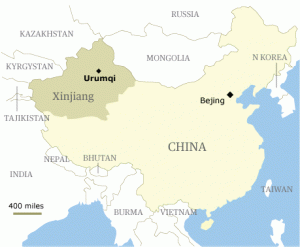Uighurs
About Uighur issue
- The Xinjiang province in China’s far west has had a long history of discord between the authorities and the indigenous ethnic Uighur population.
- Most Uighurs are Muslim, their language is related to Turkish, and they regard themselves as culturally and ethnically close to Central Asian nations.

- Some Uighurs living there refer to the region as East Turkestan and argue that it ought to be independent from China. There have been open calls for separation of Xinjiang from China since the 1990s. Since then, China suppressed any dissent from Uyghur and began placing restrictions on them.
- Ethnic tensions caused by economic and cultural factors are considered the root cause of the recent violence. There are complaints of severe restrictions on Islam, with fewer mosques and strict control over religious schools.
Recent developments
- The Chinese government has reportedly detained more than a million Muslims in re-education camps.
- Most of the people who have been arbitrarily detained are Uighur.
- Human rights organizations, UN officials, and many foreign governments are urging China to stop the crackdown.
- But Chinese officials maintain that what they call vocational training centers do not infringe on Uighurs’ human rights. They have refused to share information about the detention centers, and prevented journalists and foreign investigators from examining them.
Why in News?
- China said it will impose tit-for-tat measures after the U.S. slapped sanctions on Chinese officials for their involvement in a crackdown on Muslim minorities, raising tensions between the superpowers.
- The latest Chinese response followed a U.S. announcement of visa bans and an assets freeze on three Chinese officials for systematic abuses of Uighurs and other Turkic Muslims in Xinjiang including forced labour, mass detention and involuntary population control.
Subscribe
Login
0 Comments
